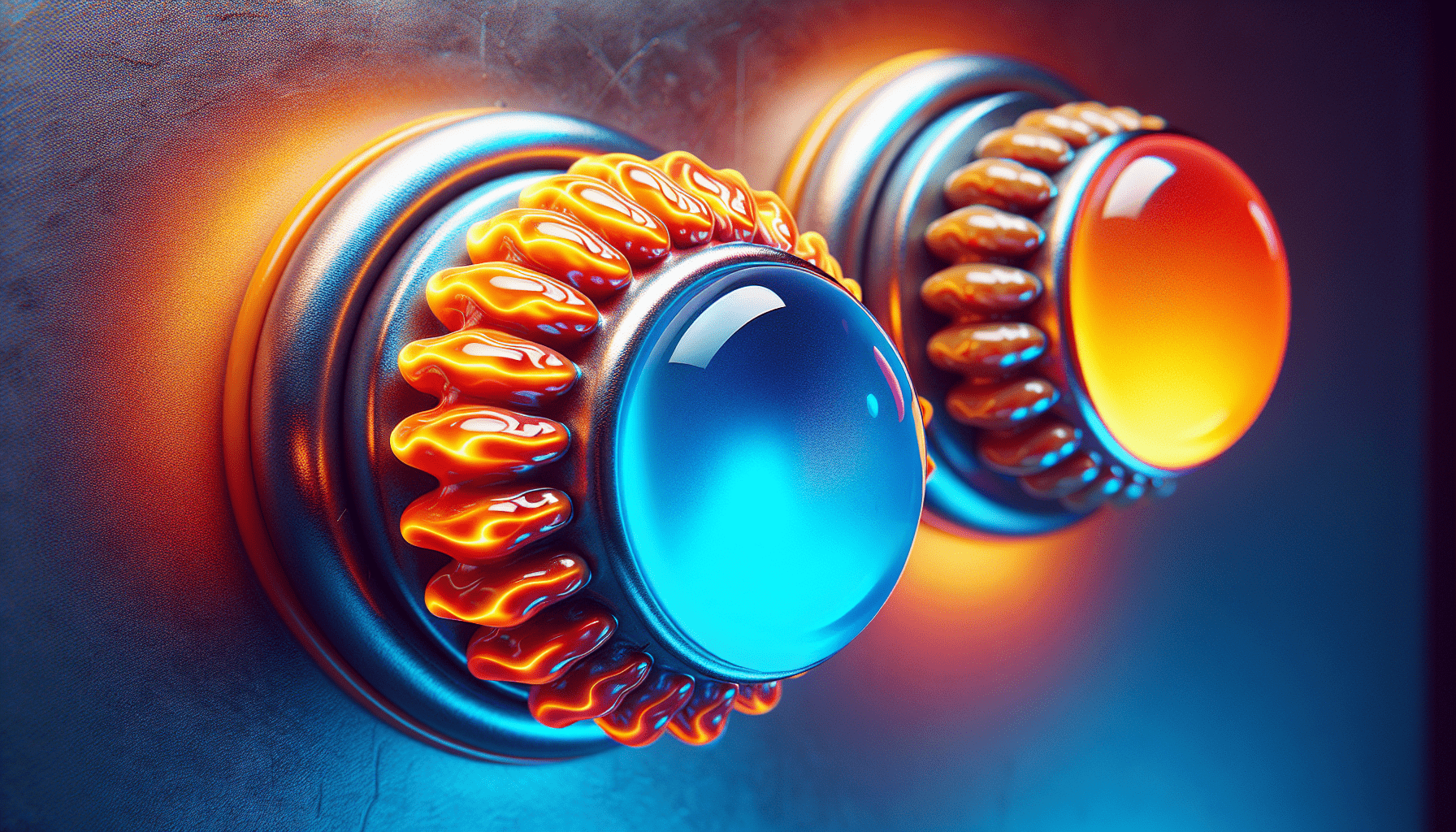Are you in the market for a new water heater, but not sure whether to go with gas or electric? Look no further! In this article, we will explore the pros and cons of both gas and electric water heaters, helping you make an informed decision that suits your needs and budget. Whether you prefer the instantaneous heat of gas or the energy efficiency of electric, we’ve got you covered. So, let’s dive in and find the perfect water heater for you!

Cost
Initial Cost
When it comes to the initial cost of water heaters, there is a significant difference between gas and electric options. Gas water heaters tend to have a higher upfront cost compared to electric ones. This is mainly due to the additional components and installation requirements for gas units, such as the need for venting and gas line connections. On the other hand, electric water heaters are generally more affordable upfront since they have a simpler design and do not require gas-related installations.
Operating Cost
While gas water heaters may have a higher initial cost, they often provide cost savings in the long run due to their lower operating costs. Gas is usually a more affordable energy source compared to electricity, especially in regions where natural gas prices are relatively low. As a result, gas water heaters tend to be more energy-efficient and cost-effective over time. Electric water heaters, on the other hand, can have higher operating costs, especially if electricity prices in your area are relatively high. However, it’s worth noting that energy prices can vary significantly depending on your location, so it’s essential to consider your local energy rates when assessing operating costs.
Efficiency
Gas Efficiency
Gas water heaters are known for their high efficiency, making them a popular choice among homeowners. These units use combustion to heat water, which allows for quicker heating compared to electric water heaters. Gas water heaters also have a higher recovery rate, meaning they can quickly refill and heat the tank after hot water is used. This efficiency translates into lower energy consumption, resulting in overall cost savings.
Electric Efficiency
Electric water heaters have improved in efficiency over the years but still generally lag behind gas water heaters in terms of energy efficiency. While they work by using electric resistance elements to heat the water, the process tends to be slower compared to gas units. Electric water heaters might take longer to recover and heat the water in the tank, which can result in slightly higher energy consumption. However, advancements in technology have helped improve the energy efficiency of electric water heaters, making them a viable option for some households.
Energy Source Availability
Gas Availability
One crucial factor to consider when choosing between gas and electric water heaters is the availability of the energy source in your area. If you have access to a natural gas supply, installing a gas water heater can be a convenient and cost-effective choice. Additionally, if you already use natural gas for other appliances in your home, such as a furnace or stove, installing a gas water heater can create a more cohesive and efficient energy system.
Electric Availability
Electricity is generally more readily available in most residential areas compared to natural gas. If you do not have a gas line connection or access to natural gas, electric water heaters are a convenient option. They rely solely on electricity, making them accessible for homeowners regardless of their location or the infrastructure available. Electric water heaters are also a good alternative if you prefer to avoid the potential safety concerns associated with gas appliances.
Installation
Gas Installation
The installation process for gas water heaters can be more complex compared to electric units. Gas water heaters require a gas line connection and proper venting to ensure safe operation. This often involves hiring a professional plumber or gas technician to handle the installation. These additional installation requirements can increase the initial cost and installation time, but they are necessary to ensure proper and safe functioning of the unit.
Electric Installation
Electric water heaters have a simpler installation process compared to gas units. They do not require gas line connections or venting, which simplifies the installation process. Homeowners with basic electrical knowledge may even choose to install electric water heaters themselves, saving on installation costs. However, it’s still essential to follow local electrical codes and safety guidelines when installing or replacing an electric water heater to ensure proper functionality and safety.

Maintenance
Gas Maintenance
Gas water heaters generally require more maintenance compared to electric models. Regular maintenance tasks for gas water heaters include checking the gas line connections, inspecting the venting system for any blockages, and ensuring proper combustion. Additionally, gas water heaters typically have a pilot light that needs to be monitored and relit if it goes out. It’s recommended to hire a professional to perform annual maintenance checks for gas water heaters to ensure their optimal performance and safety.
Electric Maintenance
Electric water heaters typically have lower maintenance requirements compared to gas units. Since they do not involve combustion, there is no need to monitor a pilot light or check the venting system. However, periodic maintenance tasks for electric water heaters include inspecting the electrical connections, checking the heating elements for any damage, and flushing the tank to remove sediment buildup. Regular maintenance can help maximize the lifespan and efficiency of electric water heaters.
Safety
Gas Safety
While gas water heaters are generally safe when properly installed and maintained, there are specific safety considerations to keep in mind. The combustion process involved in gas units can produce carbon monoxide, a colorless and odorless gas that can be harmful or even fatal if inhaled in high concentrations. To ensure safety, it’s essential to have proper ventilation and install carbon monoxide detectors near gas water heaters. Regular maintenance checks and ensuring the exhaust vents are clear of any obstructions are also crucial for gas water heater safety.
Electric Safety
Electric water heaters are generally considered safer than gas units in terms of carbon monoxide risks. However, there are still electrical safety considerations to be aware of. Before installation, it’s crucial to ensure that the electrical system in your home can handle the power requirements of an electric water heater. Faulty wiring or improper installation can lead to electrical hazards and the risk of electrocution. Hiring a licensed electrician to install or make any electrical modifications for your electric water heater is highly recommended for safety reasons.
Environmental Impact
Gas Environmental Impact
Gas water heaters contribute to greenhouse gas emissions due to the combustion of natural gas. Although natural gas is considered a relatively clean fossil fuel compared to coal or oil, it still releases carbon dioxide and other greenhouse gases when burned. The environmental impact of gas water heaters can be reduced by choosing energy-efficient models with low emissions and ensuring proper maintenance to optimize combustion efficiency. Additionally, exploring options for renewable or alternative energy sources, such as solar-powered water heaters, can further reduce the environmental impact of a gas water heater.
Electric Environmental Impact
Electric water heaters have a smaller direct environmental impact compared to gas units since they do not produce any emissions during operation. However, the electricity used to power electric water heaters is often generated from fossil fuels such as coal or natural gas, depending on your local energy grid. Therefore, the indirect environmental impact associated with electricity production and consumption should be considered. Investing in renewable energy options, such as solar or wind power, can help mitigate the environmental impact of electric water heaters and make them a greener choice.
Heating Capacity
Gas Heating Capacity
Gas water heaters are known for their rapid heating capabilities. Due to the combustion process, gas units can quickly heat large volumes of water, making them ideal for households with high hot water demand. Gas water heaters often have a high recovery rate, meaning they can efficiently heat the tank after hot water is used, ensuring a steady supply of hot water even during peak usage times.
Electric Heating Capacity
Electric water heaters typically have slightly lower heating capacities compared to gas units. The electric resistance elements used to heat the water take longer to reach the desired temperature, which can result in slower recovery times. However, advancements in technology have improved the heating efficiency of electric water heaters, and some models now offer faster recovery rates. It’s important to consider your specific hot water needs and usage patterns when evaluating the heating capacity of electric water heaters.
Longevity
Gas Longevity
Gas water heaters are known for their durability and long lifespan. With proper maintenance and regular inspections, gas units can function effectively for an extended period. On average, gas water heaters have a lifespan of around 10 to 15 years. However, factors such as water quality, maintenance frequency, and usage patterns can affect the longevity of a gas water heater. Regular maintenance checks and promptly addressing any issues can help maximize the lifespan of a gas unit.
Electric Longevity
Electric water heaters also have a good lifespan, similar to gas units. With proper installation and maintenance, electric water heaters can last anywhere from 10 to 15 years or longer. Regular inspections, checking the heating elements, and flushing the tank can help ensure optimal performance and longevity. It’s important to note that the lifespan of any water heater can vary depending on factors such as water quality, usage, and maintenance practices.
Space Considerations
Gas Space Considerations
Gas water heaters often require more space compared to electric models due to their additional components, such as venting systems and gas line connections. These units typically have larger dimensions and need clearances for safe operation and maintenance. It’s crucial to ensure that you have adequate space for a gas water heater, including proper ventilation and access. If space is a concern, it’s worth exploring more compact gas water heater models or considering electric options.
Electric Space Considerations
Electric water heaters are generally more space-efficient compared to gas units. Since they do not require venting or gas line connections, electric models tend to have smaller dimensions and offer more flexibility in terms of installation. Electric water heaters can be installed in tighter spaces, such as closets or utility rooms, provided there is proper electrical access and clearances for maintenance. If space is limited, electric water heaters are a convenient choice due to their compact design.

